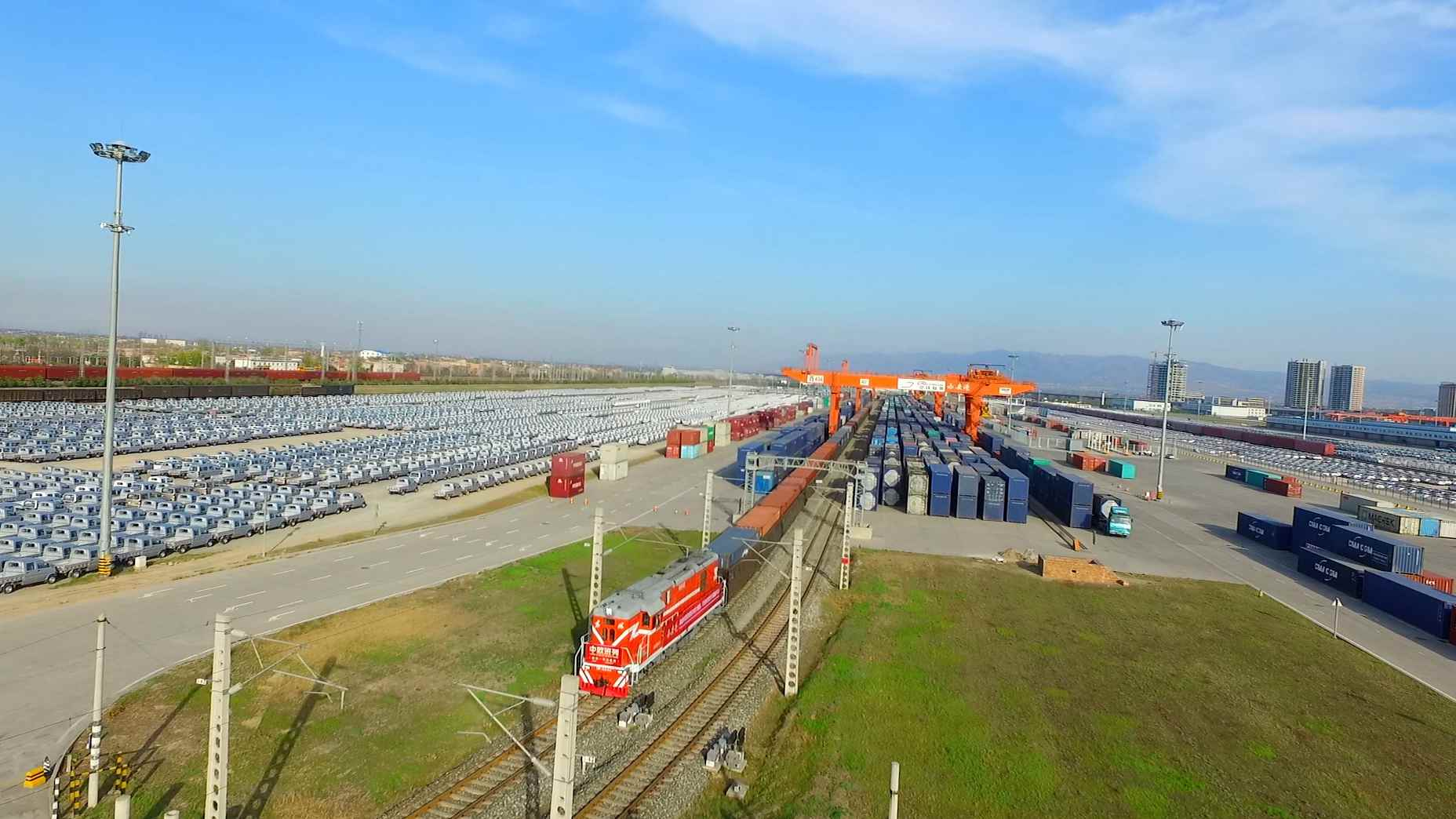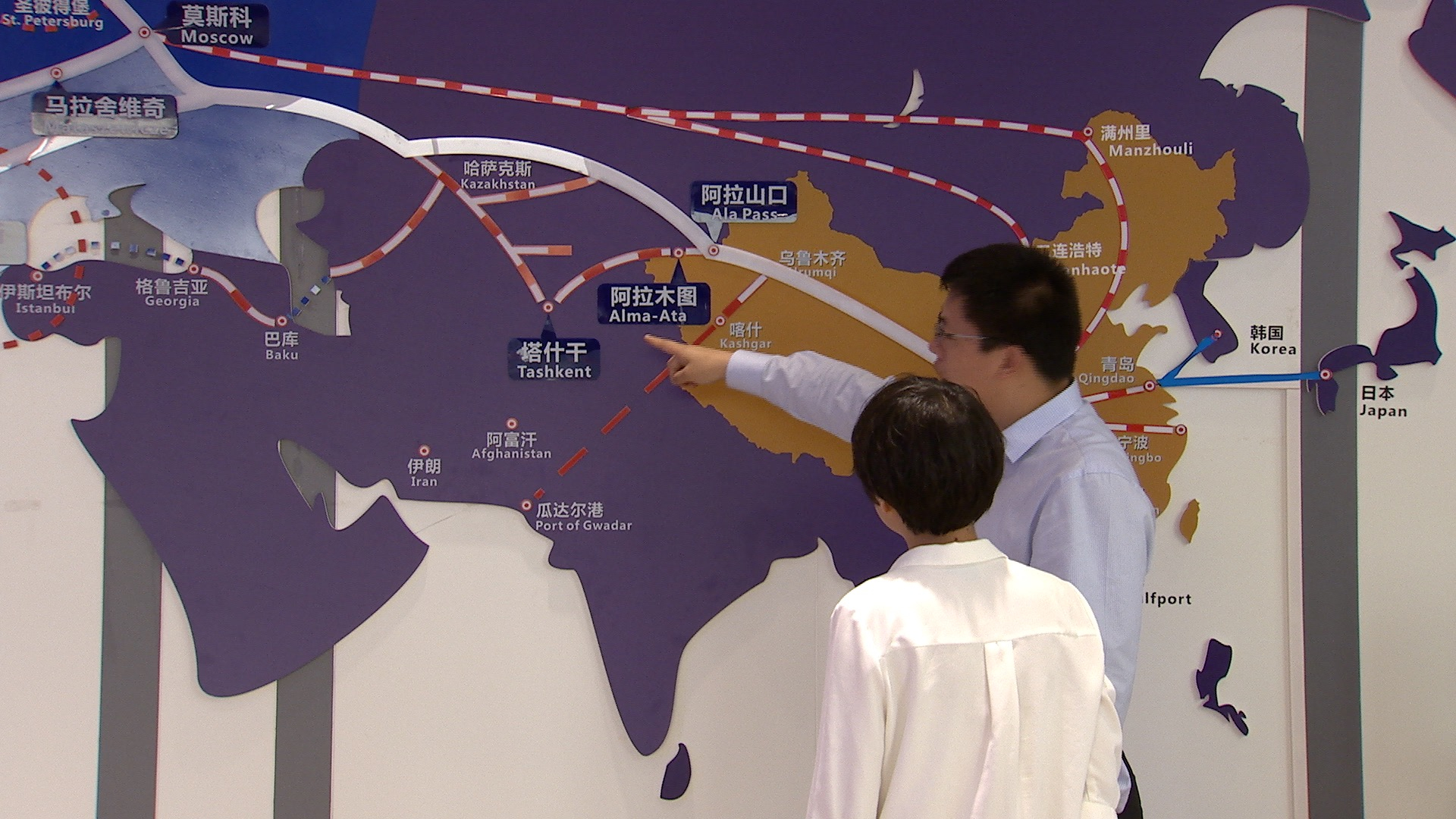
Business
14:19, 07-Jun-2018
Revived 'Silk Road' sees increasing trade between China and Central Asia
By CGTN’s Xu Mengqi, Meng Mingwei
02:30

Since China proposed the Belt and Road Initiative, there's been a dramatic increase in the number of cargo trains running between China and Shanghai Cooperation Organization member countries in central Asia, boosting trade along the ancient trading routes.
Since 2013 the number of cargo trains traveling between China and central Asia has risen dramatically and a local logistics company had seen a great leap, from once or twice a week last year to two to three trains per day now, Yuan Xiaojun, general manager of the logistics company that operates cargo train services between northwest China city of Xi’an and the capital cities of Almaty and Tashkent in central Asia, told CGTN.

Yuan Xiaojun showing CGTN reporter a map of the cargo train service. /CGTN Photo
Yuan Xiaojun showing CGTN reporter a map of the cargo train service. /CGTN Photo
Xi’an was once the starting point of a land corridor on the Silk Road, an ancient network of trade routes that connected Asia with Europe. The route was an important medium, not only for economic, but also cultural and political interactions between civilizations along its path.
One commonly accepted way to look at the Belt and Road Initiative is to understand the “belt” as a revival of the historical Silk Road, which entails infrastructure construction such as express railways. As a tribute to the past trade history, the cargo trains that run through the revived route has been nicknamed in Chinese “Chang’an,” the ancient name for today's Xi’an City.
According to Yuan, the cargo trains carry mostly exports of mechanical and electrical products, clothing and building decoration materials from China and imports of cotton yarn, wheat, mung beans, and honey from central Asia.
The comparative advantage of China in manufacturing and central Asian countries in their organic agricultural products provides a chance for trade to thrive. Yuan Zhaohui, who along with his Kazakh wife, started an e-commerce platform dedicated to cross-border trade, said they had taken more than 800,000 orders last year and there is the prospect for the exported goods to exceed 100 million US dollars in value this year.

SITEMAP
Copyright © 2018 CGTN. Beijing ICP prepared NO.16065310-3
Copyright © 2018 CGTN. Beijing ICP prepared NO.16065310-3